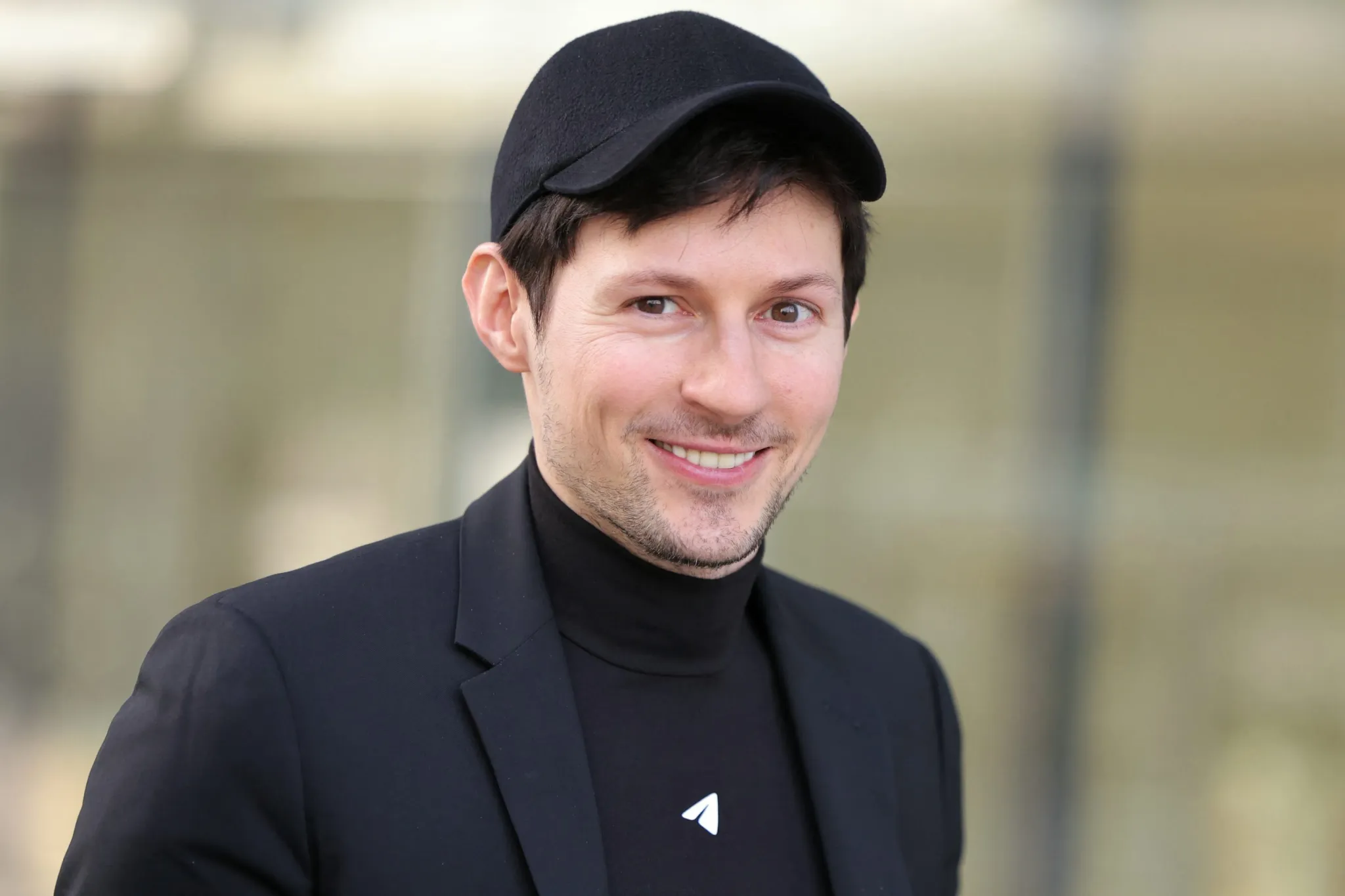- Telegram just announced its first annual profit, raking in $540 million in 2024. Revenues also hit $1.4 billion, up from $343 million a year ago. The company is fully owned by Pavel Durov, the 40-year-old billionaire wunderkind who’s often been called the Mark Zuckerberg of Russia, and who also happens to be facing criminal charges right now.
Pavel Durov, the man behind the encrypted messaging service Telegram, is one of the most interesting figures in the world of tech. While he’s often compared to Mark Zuckerberg, given his penchant for launching successful social-media companies, he also has a lot in common with world’s richest man—and fellow free-speech absolutist—Elon Musk.
Durov, like Musk, is a pro-natalist, meaning he is a strong proponent of having more children to populate the planet. Though Durov says he “has never been married and prefers to live alone,” he also announced last July he has “over 100 biological kids.” In a Telegram post, the billionaire CEO claimed since a friend approached him over 15 years ago to donate sperm so he and his wife could have a baby, he’s now “helped over a hundred couples in 12 countries to have kids,” and “at least one IVF clinic still has my frozen sperm available for anonymous use by families who want to have kids.”
Durov is an intriguing and polarizing figure, who has had his fair share of pits and peaks in just 40 years of life.
A math and coding prodigy
Pavel Durov was born in October 1984 in Russia’s second-largest city, St. Petersburg—though it was Leningrad back then, before the Soviet Union was officially dissolved in 1991.
While Durov’s grandfather served in the Soviet Red Army during World War II, and his father was a scholar and faculty head at Saint Petersburg State University, Durov actually spent many years growing up in Turin, Italy, after moving to the Mediterranean country at the age of four.
Durov, like his older brother Nikolai, was a math prodigy. In one of his rare interviews, a 2024 sit-down with Tucker Carlson, Durov said he and Nikolai won multiple gold medals at the International Math Olympiad and were featured on Italian television several times to solve cubic equations in real-time.
When his family moved back to Russia after the fall of the Soviet Union, they brought a parting gift from Italy: an IBM personal computer. Durov told Carlson that meant he was in “one of the few families in Russia who could actually teach ourselves how to program.”
The Mark Zuckerberg of Russia
Durov was a prodigious coder. He built a popular forum for his university—Saint Petersburg State, the same school where his father worked—while he was a student there. But in 2006, one of his classmates introduced him to Facebook, which led the pair to create a social network of their own. (A third classmate became the third co-founder.)
Their creation, VKontakte (also known as VK), launched in September of that year, and amassed a million users just eight months later. Less than a year after that, their user base swelled to 10 million. By December 2008, Durov was the proud operator of Russia’s most popular social network.
Durov reigned as VK’s CEO until April 21, 2014. Just three weeks after an April Fool’s joke gone wrong—Durov submitted his resignation to the board on April 1, but insisted it was only meant as a joke—the company removed him as VK’s chief executive.
“Interestingly, the shareholders did not have the courage to do this directly and I learned about my mysterious dismissal from the press,” Durov wrote on VK the day he was fired.
Durov, who had a contentious relationship with Russian authorities after refusing several requests to remove opposition politicians’ pages from VK, said at the time his ouster meant the company had been taken over by Vladimir Putin’s allies. Just five days later, on April 26, Durov left Russia and said he had “no plans to go back” because “the country is incompatible with internet business at the moment.”
The creation of Telegram
During his time as VK’s CEO, Durov had several run-ins with the government. So in 2013, when he was still leading efforts at the social network, he and his brother Nikolai decided to launch a messaging service built on end-to-end encryption, to keep private messages free from government interference. The brothers launched Telegram Messenger in August that year, first for the iPhone, and later for Android devices.
(A year later, Mark Zuckerberg directed Facebook to buy Whatsapp in a blockbuster $19 billion deal. Durov told TechCrunch‘s Mike Butcher at the time “it doesn’t matter how many messaging apps are out there if all of them suck.”)
After Durov left Russia following his ouster from VK, The New York Times reported Durov was “moving from country to country every few weeks with a small band of computer programmers. One day he is in Paris, another in Singapore.” Eventually, Durov set up shop with his team in Berlin, Germany, in 2014 before later moving its headquarters to Dubai in 2017. The company says it spreads its corporate structure across various jurisdictions to avoid needing to comply with government subpoenas and, according to its website, “protect the data that is not covered by end-to-end encryption.”
Telegram now has one billion users and became profitable for the first time last year. According to The Financial Times, after announcing a $173 million loss in 2023 on just $343 million in revenue, the company reported $540 million in profit in 2024 on a whopping $1.4 billion in revenue. Telegram, which has issued about $2.4 billion in bonds over the past four years (and repurchased $375 million worth of them between September and December of last year), the company has also made in-roads with “conversational AI,” partnering with Elon Musk’s xAI to integrate its chatbot, Grok, into the social network.
Legal trouble
In August 2024, French authorities detained Durov after his private jet landed outside Paris, charging him for enabling and allowing illegal activity— such as drug trafficking, fraud, and child sexual-abuse materials— to flow through Telegram. While he was forced to stay in the country at the time, he was finally allowed to leave France in March of this year, albeit temporarily, to visit Dubai.
Durov faces up to 10 years in prison, if convicted. His criminal case has re-invigorated debate around the extent tech executives should be responsible for the activities that happen on their platforms. Binance founder Changpeng Zhao pled guilty in 2024 to money-laundering violations that happened on its crypto platform, and Ross Ulbricht, creator of the black market Silk Road, was convicted of using the internet to facilitate a criminal enterprise. But while Ulbricht was sentenced to double life in prison, plus 40 years, without the possibility of parole, he was released from prison after serving 12 years in jail, in January 2025, after he received a full and unconditional pardon by President Trump.
This story was originally featured on Fortune.com

